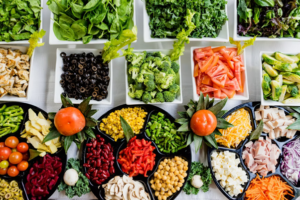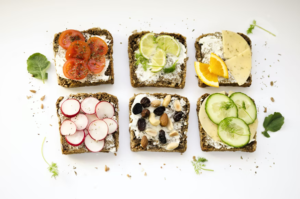
Eating a plant-based diet is one of the best decisions you can make for your health, go here for better options. Plant foods are low in calories, high in nutrients, and full of fiber that will keep you feeling fuller longer. If you’re new to this lifestyle or just looking for some guidance on how to maintain it, then here are our top seven tips.
Start A Plant-Based Diet Slowly
If you’re not used to eating a lot of fruits and vegetables, don’t try to go cold turkey on a plant-based diet. Start by gradually adding more plants into your meals until your diet is mostly plant-based. You can start by adding healthy amazon greens with the best ingredients to your preferred beverage daily. This will help your body adjust to the change and make it easier for you to stick with the new diet.
In addition, start by eliminating processed foods from your diet. Processed foods are high in unhealthy fats, sugars, and chemicals that can have negative effects on your health. Replacing processed foods with whole foods that you can find at the healthiest vegan black-owned restaurants will make it easier for you to follow a plant-based diet and improve your overall health. Finally, be patient. It may take some time for your body to adjust to your new diet and you may not see the results you want right away. Stick with it and know that over time, your body will start feeling better.
Get Enough Iron
Iron is an essential nutrient used to make hemoglobin, the protein in red blood cells that carries oxygen from your lungs all around your body. Iron deficiency can lead to iron-deficiency anemia, which causes fatigue and weakness. Luckily, plant-based foods are naturally rich sources of iron! On a vegan or vegetarian diet, you’ll want to focus on eating lots of these top vitamin C-containing foods with high amounts of nonheme (plant) dietary sources: dark leafy greens like bok choy, kale, mustard greens, turnip greens & broccoli. Other great options include watercress & peas as well as beans such as soybeans, black beans & lentils. You can also try fortified foods like breakfast cereals, plant-based milk & some juices. Just be sure to avoid eating too much soy if you’re male because it can interfere with testosterone levels and it may cause loss of libido.
Boost Your Fiber Intake

Fiber is essential for a healthy digestive system and can also help to regulate blood sugar levels. It’s recommended that adults consume at least 25-30 grams of fiber per day, and it can be especially tricky to get enough on a plant-based diet. The best way to make sure you’re getting enough fiber is by eating plenty of whole plant foods throughout the day. You can also try sprinkling some psyllium or flaxseed into smoothies or onto salads to boost your fiber without having to add more bulk.
If you’re eating a balanced diet with lots of vegetables and fruit, whole grains, legumes & nuts/seeds then you should be getting enough fiber. However, if you’re struggling to hit your daily target then there are a few specific high-fiber foods that can help: chia seeds (14 grams per ounce), hemp hearts (11 grams per quarter cup), and cooked lentils (17 grams per cup).
Drink Enough Water
Most people don’t drink enough water, and it’s a huge problem. You need to be drinking at least half your body weight in ounces each day for optimum health. If you’re not sure how much that is, use the formula of 0.33 per kg/bodyweight e.g., if you weigh 60 kgs (132 lbs.) you need to drink at least 2 liters of water per day. Spread your intake out throughout the day and make sure you’re drinking enough before, during, and after exercise.
Get Enough Vitamin B-12
Vitamin B12 is only present in animal products, so if you’re following a plant-based diet it’s important to get enough of this vitamin. Vegans can eat fortified foods or take supplements, but some research suggests that you may need up to 2000 micrograms per day (R). Other vegans who are not consuming enough B12 will be at risk for developing anemia and even mental health problems like depression. This has nothing to do with the vegan lifestyle itself; it just means that they aren’t getting enough nutrients on their limited food choices. Everyone should strive for optimal levels of all vitamins by eating plenty of fruits and vegetables while also supplementing with multivitamins when needed. If you are affected by abnormal urine flow, these fluxactive complete reviews may help you find the best solution for a healthy prostate.
Make Sure You’re Getting Enough Vitamin D
A plant-based lifestyle can be very healthy, but it’s important to make sure you’re getting enough of all the essential vitamins and minerals. One vitamin that is especially important for plant-based eaters is vitamin D. Vitamin D is important for bone health, immune function, and preventing chronic diseases like cancer.
The best way to make sure you’re getting enough vitamin D is to expose your skin to sunlight regularly. However, not everyone lives in a sunny climate, so supplementation may be necessary. There are many vegan-friendly supplements available on the market that provide adequate levels of vitamin D. Talk to your doctor or nutritionist about what supplement would be best for you. If you’re a bodybuilder, check out this guide on finding the right supplements for bodybuilders.
Find Other Sources of Protein
Many people worry that a plant-based lifestyle is not enough to provide adequate protein for your body. This isn’t true! There are plenty of other sources of protein available to those who don’t eat meat or dairy products, and they’re often cheaper than animal proteins too. Eat nuts, beans, lentils, and whole grains daily instead of beef, pork, or chicken breasts. It may take some experimentation with different types of food before you find what works best for you, but it’ll be worth it when you see how healthy this kind of eating can make you feel.
Plant-based diets are healthier for people and the planet. Several simple changes can make a big difference in your health, animals, and our environment. This article contains tips for making those little changes in your life become habits so you don’t have to think about them too much.






